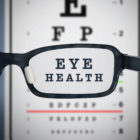The Red Hot Mamas did a Sleep Survey that clearly reveal sleep is a major issue for women throughout their peri-postmenopausal years. However, even though sleep disturbances rank highest of all menopausal symptoms, women are often not asked about it by healthcare providers and patients themselves often fail to bring it to their healthcare providers’ attention. This survey illustrates that there should be more awareness of sleep disturbances as a major health concern in women in and around menopause and that both healthcare providers and the menopausal women they treat should open lines of dialog that lead to treatment both to improve quality of life and as a form of disease prevention. If you are missing a few nights’ sleep, it doesn’t automatically qualify you as having a sleeping disorder. But, if your sleep difficulties are consistent, you can benefit from the help of your doctor. There are a variety of treatments depending upon the underlying cause. Hot flashes and night sweats are common reasons for menopausal women to have poor quality sleep. Discuss hormone therapy (HT) as it has been shown to improve REM sleep and sleep quality. If HT is something that you either cannot or do not want to take, there are other prescription medications available which are specifically designed to help you get to sleep and stay asleep. There are over-the-counter sleep aids available as well. If you or your partner snores, it could be a sign of sleep apnea and should be investigated. Depression and anxiety can also affect sleep. Your doctor can work with you to determine if this is a problem and recommend a course of treatment. If getting up to go to the bathroom during sleep is a common problem for you, discuss this concern with your doctor. There are exercises, medications and procedures to make it better. Of course, lifestyle modifications like diet and exercise can play a role in your quality of sleep. It also helps to limit your activities in bed to sleeping and sex and pick a consistent bedtime. So, include that in your discussion with your doctor. Finally, realize that a lack of sleep can make anyone’s mood or memory worsen. So don’t toss and turn. You can have a peaceful slumber. For more information you can also visit the National Sleep Foundation. One, Two, Zzzzz…Doctor Mache, Helping America Stay Well
4
Mar
in Menopause
no Comments




